When you decide to build an online marketplace, you are faced with many foundational decisions that could impact your long-term success. Probably the most important decision is how you should build your marketplace. Do you go it alone with a DIY marketplace website builder or go the custom route with the aid of a software development agency?
To help you decide which development option would be the best fit for your marketplace idea, we compared the pros and cons of hiring a software development agency with that of using a DIY (turnkey) website builder. We covered the following aspects to help you decide:
- A short history of online marketplaces
- Why online marketplaces fail
- Turnkey Marketplace Builder vs Software Development Agency: 10 criteria to consider
- And the Winner is . . .
A short history of online marketplaces
Compared to the time it took physical marketplaces to evolve from informal gatherings on the town square to today’s gigantic shopping malls, e-commerce, including online marketplaces, is but in its infancy.
Having grown substantially since its inception in 1982, online marketplaces now represent nearly 40% of online retail. And it is still growing! According to reports by Coresight Research and Kahuna, online marketplace revenues are expected to double from $18.7 billion in 2017 to $40.1 billion in 2022. Most of this is generated by giants like Amazon, which alone features over 300,000 small-to-medium-sized businesses in its online marketplace.
Of course, online marketplaces are not only limited to physical goods. Peer-to-peer marketplaces like Airbnb (market cap in 2024: $85 billion) and Uber (market cap in 2024: $121 billion) provide services such as short-term property rentals and transportation. Check out our Amazon case study and Airbnb case study to discover how these marketplace behemoths became so successful.
Despite its explosive growth, the online marketplace model is still relatively new.
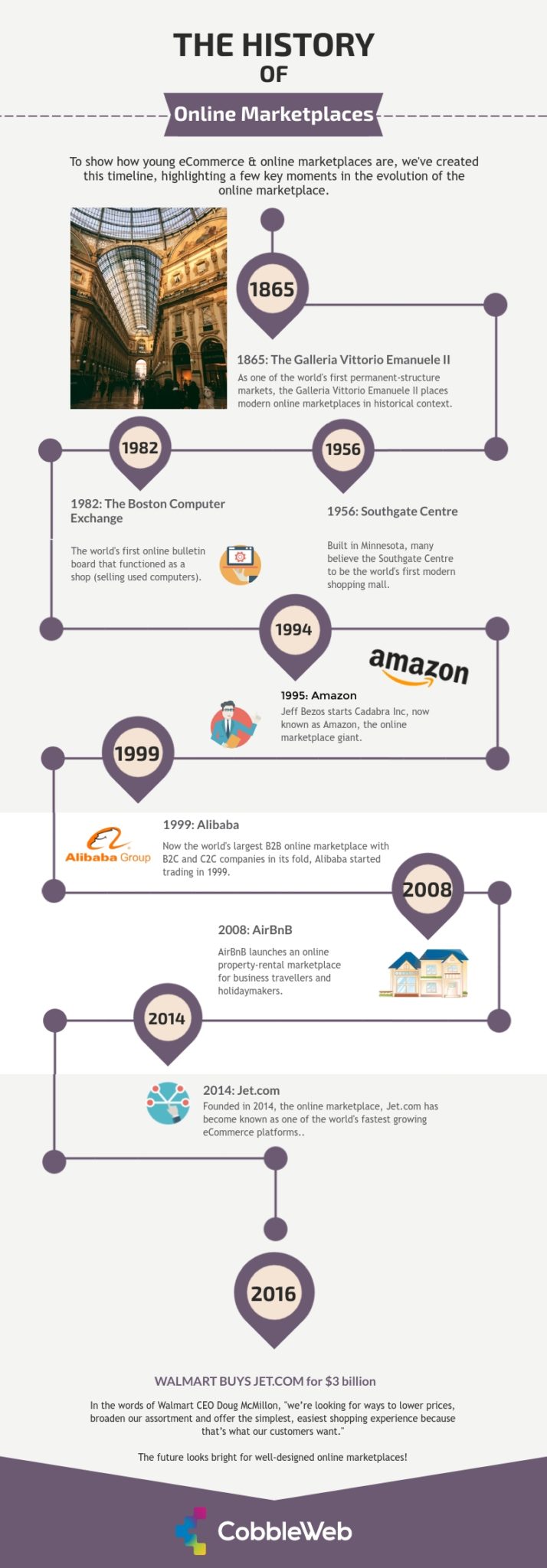
Why do online marketplaces fail?
Not every startup turns into an Amazon or an Airbnb though. Amidst the frenetic growth of e-commerce models such as online marketplaces, many newcomers fall off the bandwagon.
According to Harvard business school professor, Clayton Christensen, about 95% of new products fail. His claim is supported by research from the American Small Business Administration (SBA): only 10% of startup businesses are still in operation after 18 months. But why?
Steve Chapman, the founder of DIYBusinessClasses.com, says “the reason most people fail to activate financial sustainability (the first level of success) from their initial business efforts is because they have NO IDEA what they are doing.” This sounds harsh, but given the pioneering nature of starting a new business, especially in an ever-evolving field such as e-commerce, this is to be expected.
This lack of experience and expertise often lead to the failure of marketplace startups for two critical (and interdependent) reasons:
- Insufficient product-market fit
- Using the wrong technology to create your marketplace
Without the right tech stack, it becomes very difficult to validate product-market fit – i.e. the extent to which your solution solves sufficient numbers of users’ needs in a profitable manner. That’s because the tech stack should support your unique business case, which encompasses user flows, revenue streams, and target markets. It should also scale easily as your marketplace grows after achieving product-market fit.
Turnkey Marketplace Builder vs Software Development Agency: 10 criteria to consider
Unless you have a platoon of top-notch in-house developers, there are two main ways to turn your marketplace idea into a reality: use a turnkey website builder (SaaS solution), or partner with a development agency (custom solution). But which technology option is best to create your online marketplace? Let’s compare their pros and cons to find out which one comes out on top.
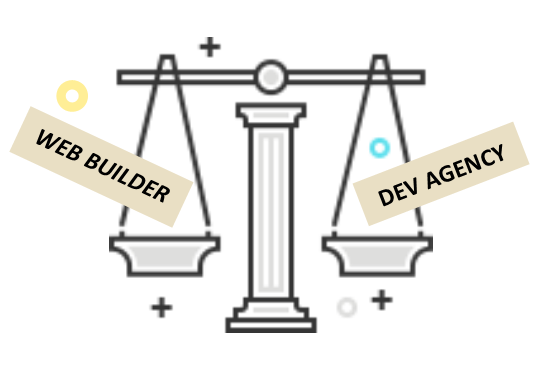
In the left-hand corner …
The Online Marketplace Builder
Website builders are platforms that make it easy for non-developers to create a website or online marketplace without coding. This can be a CMS like WordPress or an online website creator like Wix, both of which enable e-commerce sites through plug-ins. There are also more specialised e-commerce platforms with dedicated marketplace features, like Shopify, Magento and Sharetribe. Online marketplace builders usually operate as SaaS platforms that offer pre-developed software and templates on a subscription basis.
And in our right-hand corner …
The Web Development Agency

Web development agencies are companies that specialise in the design, development, testing, and improvement of online applications and software. They provide custom solutions that are focused on solving your specific business challenges in an optimal manner. Development agencies tend to occupy different niches with some specialising in the development of custom online marketplaces.

Round 1: Speed
Website Builder:
If you’re not too picky about your design template and you only have a few basic products to set up, you could easily have your first version ready in less than a week.
Dev agency:
The timeline of a custom development process is subject to a number of factors. At what stage is your marketplace concept? Do you have an existing MVP up and running? How many features do you need? How complex are those features? Are there budget constraints on the number of development resources that can be utilised? In general, a basic first version MVP will take three to nine months.
Winner: Website builder
Round 2: Cost
Website Builder:
Depending on your marketplace’s requirements, the prices vary from free to over £300 a month. If you are creating an online marketplace with at least two vendors and a payment gateway, you’re looking at an average of about £200 per month. Here are some monthly price plans for comparison.


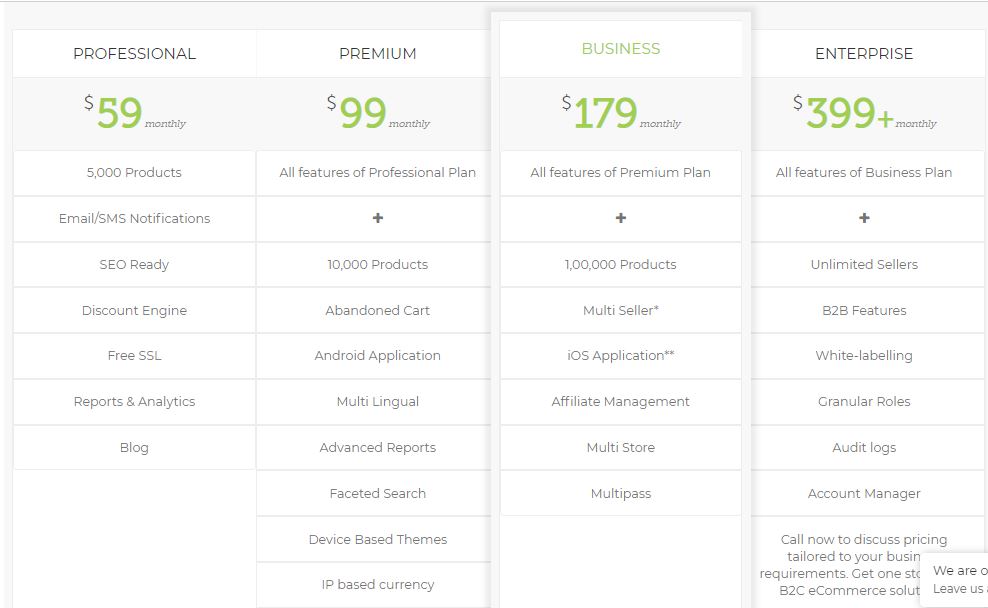
The big concern with subscription-based software costs, however, is that they can pile up quite quickly. Most website builders offer a cheap basic plan that can help you create a website, but to get the required features for a marketplace you must add pricey plug-ins, pay transaction fees and continuously buy more to get more.
After a year, your application’s costs could pile up to over £2600 without ever reaching a fully-featured marketplace. In ten years you will have spent over £26 000, which is about the time it took Airbnb to become the multi-billion dollar company it is today.
Dev agency:
If you need a basic marketplace, some software development agencies can have a high-fidelity MVP up and running for around £10,000. Costs can vary quite a bit though, depending on the number and complexity of features. The number of iterations required to test assumptions and reach product-market fit will also have an impact on cost. It is therefore recommended that you plan a budget that is aligned with the milestones on your product roadmap, instead of a focusing on a once-off cost.
The upside of partnering with an experienced marketplace developer is that your budget will be broken down into transparent components: features, epics, and user stories. A lean iterative approach will make sure your budget is spent incrementally as milestones are reached. This minimises financial risk and increases success rates.
Winner: Website builder (if you manage to avoid all the hidden costs)
Round 3: Ownership
Website builder:
Your monthly payments mentioned above is a subscription fee. It functions similar to a rental, since you pay recurring fees for access to hosting, software services, and online real estate. You therefore never truly own your application and can’t sell it. Should you choose to quit your marketplace builder, or heaven forbid it goes bust, you lose everything.
Fortunately, not all online marketplace builders work this way anymore. Sharetribe, for example, allows you to export your online marketplace source code. If you choose to install this on your own server, it can continue to run as it did. As you will no longer be able to use the web builder’s CMS or customisation tools to make changes, you will have to hire proficient developers in order to customise your site, but the site itself will be your property.
Dev agency:
When you pay for your product, the product is yours. This means that the application and its source code belongs to you and as with websites exported from website builder software, you can install this on your own server and run it as you please. For editing and customisation, you can either request that a CMS type portal be built alongside your online marketplace or you can commission the web development agency or hire your own developers to make ad hoc changes as you need them.
Winner: Tie
Round 4: Flexibility
Website Builder:
Some online marketplace builders allow you to customise the appearance of your site, with some offering over thousands of website templates or themes to choose from. The selected theme allows you to move items around, change colours and fonts, and upload your own images to create a custom look that matches your brand. Some marketplace web builders even allow you to create custom HTML and CSS code to further manipulate the way your site looks.
For feature customisation, website builders rely on a plethora of plug-ins and widgets that can extend the functionality of your e-commerce website to include features like ratings, appointment bookings, shopping carts, and more.
Sadly however, these tools are set up to cater for specific scenarios, offering for example a rating out of 5 stars, not the 10-point system you had in mind. A bookings calendar plug-in is another good example – it might not offer discounted bookings made six months in advance as per your business model.
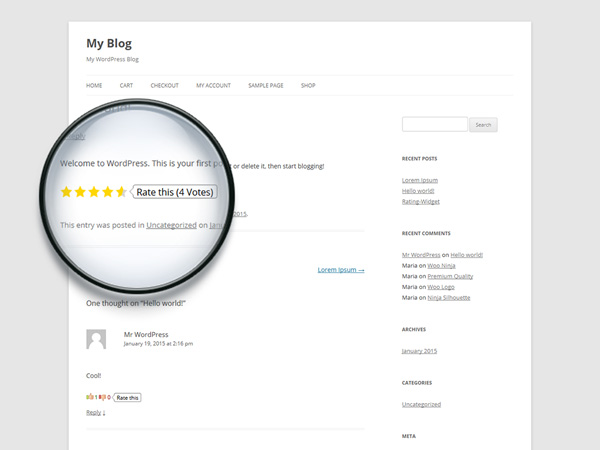
Mobility can also be a problem. In some instances, your previous work will be lost when you switch from one template to another, making it a challenge to move your content seamlessly to the new design. This makes it difficult to experiment and improve in a continuous manner.
Your technology options are also limited. Should you choose to export your site and hire developers to do customisation, they will be locked into the technology used by the website builder software.
Dev agency:
Design and feature-wise, your product can be exactly what you want it to be, as it is tailor-made to your specifications. Should you choose to redesign your marketplace, the web development agency can easily reuse previous content.

If you decide to continue customisation of your marketplace in-house or with a different development agency, you will also experience some technology lock-in, but you will have had the advantage of choosing which technology to use from the start.
Consultation with a development agency helps you identify the tools and coding language best suited for your project and allows you to select technology that you are comfortable with. If ever the time comes that you choose to move your online marketplace away from your initial development partner, you will be familiar with the tech it uses and will be able to hire new developers accordingly.
Winner: Dev agency
Round 5: Solving your business problem
Website Builder:
Should you choose to build an e-commerce website or online marketplace with a website builder, we suggest conducting plenty of research into the capabilities of your preferred platform to determine whether or not the web builder meets your demands. If you discover a lack of functionality later on, you will have wasted a lot of resources rowing in the wrong direction.
Website builders do not offer help with aligning your technology and platform features with your target market. This may result in a product that does not fit your market or does not properly solve its problems.
Dev agency:
Web development companies can help you identify the features required to solve your business problem and build back-end logic that successfully facilitates the necessary user interaction.
At CobbleWeb we follow an iterative method of building marketplaces, which results in continuous improvements to the product over short periods of time. To ensure that we are creating the right online marketplace for your business model and meet your users’ needs, we build metric hooks right into the foundation. This allows us to measure user interaction with the application and obtain valuable feedback that helps you to make an informed decision for each new version.
Experienced development agencies can therefore help you to validate your business model throughout the development process using accurate data.
Winner: Dev agency
Round 6: Support
Website Builder:
The support you receive depends on the marketplace builder you are working with. In general however, web builders have thousands of users eager to create a website. This means that there are good public forums and discussions on portals like Quora and Stackoverflow, where you can get help from your peers. Many online web builders also invest in frequently-updated FAQs and tutorial videos which can be very helpful.
Should your problem be a bit more tricky or specific, you will need to log a ticket with the website builder software support team or send them an email. As one of thousands of users, your issue might not be dealt with quickly or effectively.
Dev agency:
As with online marketplace web builders, the support you receive depends on the tech partner you are working with. That being said, you can expect plenty of face-time with your software development agency, regular updates on the project, and personalised responses to your queries.
Tech partners invest in their clients. They analyse your business model and product-market fit to better understand your vision. Only then can they begin to build the right product. When it comes to technology, web development companies play a guiding role, helping you to understand the process and the product. Service level agreements are also usually included in the development contract, making sure your requirements are defined and prioritised.

Winner: Dev agency
Round 7: Extensibility
Website builder:
Extensibility refers to the addition of new functionality and capabilities. For online marketplaces built with website builder software, the addition of popular features is a quick and painless process made possible by plug-ins and widgets.
However, should you wish to integrate a toll management system, for example, the process is not as quick and painless. If the integration requires coding work from the website builder’s side your request can take months to be implemented … if ever.
Adding a native mobile application is also quite a process when using a marketplace builder. Most sites built using website builders are mobile friendly for viewing via a web browser. Native applications downloaded from Google Play or the iOs App store are something completely different though.
Native apps can be created using tools like Cordova, but you will need to hire a team of developers to export your site, make many changes and construct the application. A process that costs time and money. It also compromises the quality of your application.
Extending capability by means of hardware integration, for example a camera or card-reader, provides the same challenges, unless you are lucky enough that it is already catered for by one of the marketplace builder’s plug-ins.
Dev agency:
When you share your online marketplace vision with a software development agency, you are encouraged to paint the big picture. This helps them to build the correct foundation. This will save you from structural issues later on when you want to add more features and functionality.
Professional web developers create online marketplace applications with extensibility in mind. It depends on the tech partner, but if they are worth their salt, most integrations with other software or hardware components should be possible. Similarly, extending your offering to mobile applications for Android and iOs should be a breeze.
Winner: Dev agency
Round 8: Scalability
Website Builder:
Scalability refers to your application’s ability to handle more traffic, be it more products, more vendors, or more users.
Online marketplace builders have strong infrastructure capable of handling high volumes. Sadly however, in most cases you are sharing the available resources with over thousands of other users. If you find that your resources are strained, you are encouraged to upgrade your subscription plan to obtain more storage space or the capability to handle more traffic. In the end, you get what you pay for.
Should you decide to move your product from this shared infrastructure to a dedicated option either offered by the web builder or set up and maintained by your own team, you may need to jump through some hoops. These hoops refer to issues like moving your data from one database to another or re-installing all your plug-ins to reach your product at its new destination.
Dev agency:
Depending on the tech partner, you may also be sharing your infrastructure with other clients as you would with a marketplace web builder. You will though, not be sharing with nearly as many clients as you would with a web builder and you have the option to request more powerful infrastructure whenever the need arises.
Requesting a dedicated infrastructure will add to your costs, but when the time comes, your tech partner should easily be able to move your marketplace from one infrastructure to the other. The development agency will still have to setup and configure your new infrastructure, but the process will not be as painful, as you will have guidance and support throughout.
Winner: Dev agency
Round 9: SEO
Website Builder:
Website builders tend to claim that online marketplaces built with their software provide extra search engine optimisation and as such, are more likely to appear in Google search results. According to Jeremy of Website Builder Expert, this is not true. You can read about a clever experiment they tried comparing Wix with WordPress here.
And of course, website builders don’t provide you with optimised viral content that will drive people to your marketplace in droves.
Dev agency:
Some software development agencies do have SEO specialists that can help you with on-page content optimisation, but that usually falls outside the remit of a development project. You would probably be better served by a dedicated content marketing expert for on-page SEO.
However, development agencies can play a powerful role in the technical aspects of SEO. Technical SEO includes all the structural and performance elements that help search engines crawl, index and present your content.
For example, have you ever wondered why some search results have star ratings and others not? That’s because the developers made sure to include rich snippets (aka structured data markup) in the application’s code. It helps search engines to grab deeper details from your web pages and present them in a more attractive and informative manner in search results.
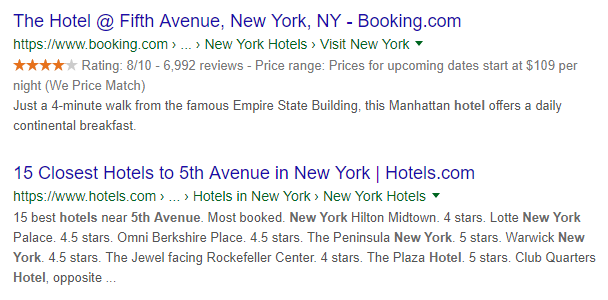
Other important technical SEO elements include URL structure, site architecture, mobile-friendliness, redirects, and of course site speed (which you will shortly see is not exactly web builders’ forte). You can learn more about technical SEO for marketplaces in our comprehensive guide: Technical SEO – the hidden engine of marketplace growth
Winner: Dev agency
Round 10: Performance
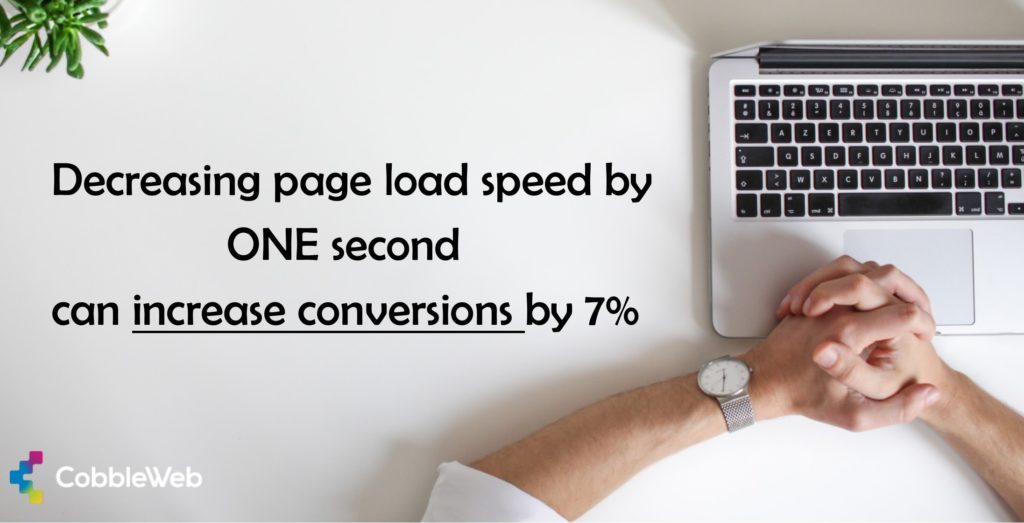
Website Builder:
Due to the powerful infrastructure mentioned above, online marketplaces built with website builders should have quick server response times. That being said, there are many companies like Speedboostr who try to solve this performance problem, which tells us that web builders leave much to be desired when it comes to performance.
Below you can see the performance of Karlie Kloss’s website built on Wix, a popular website builder.
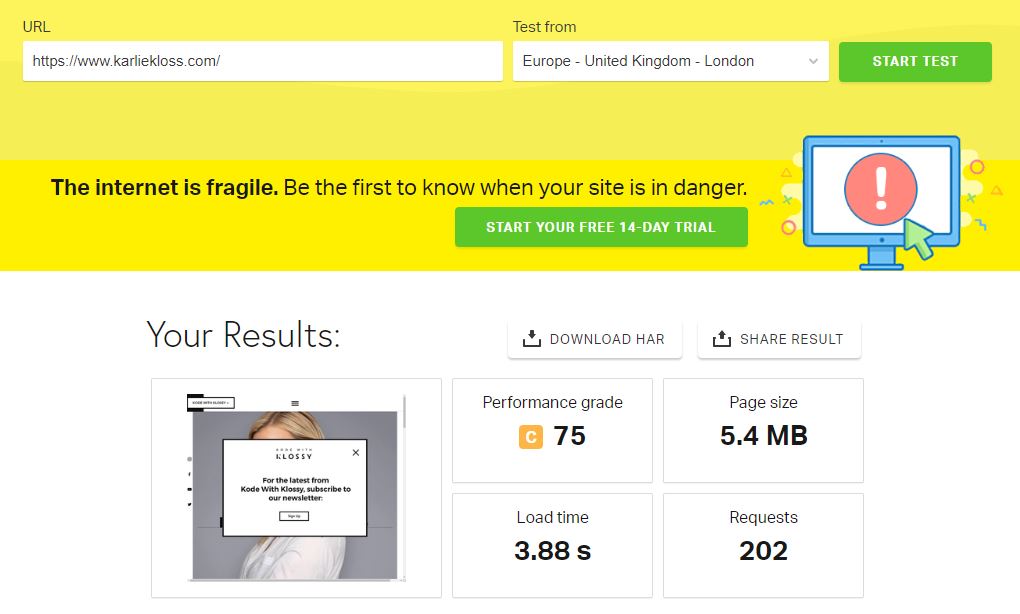
In contrast, the custom-built FanPass marketplace, only takes 1.8 seconds to load.
This could be due to bloated infrastructure (trying to be all things to everyone), but also using too many features and plugins. When you install a plug-in on your site, chances are you only need part of what it offers. For example, a media plug-in may offer multiple features such as carousels, an image editor, as well as support for file types that you do not use. Only part of the plug-in serves a purpose; the rest is dead weight that can slow down your website.
Dev agency:
Software development agencies worth their salt will always prioritise platform performance by aligning the tech stack and feature set with the business case and user needs. For example, an image-heavy retail marketplace like Airbnb uses Redis as an in-memory database to reduce latency, while ride-hailing app, Uber, uses it for both caching and queuing to handle large amounts of real-time requests.
Winner: Dev agency
The overall winner: software development agency
There you have it. A qualified software development agency trumps DIY marketplace builders in seven out of ten criteria, while turnkey solutions have the edge in speed of implementation and cost. Even that may be a risky proposition though, as an inflexible, unscalable turnkey solution may very well lead down an endless rabbit hole – costing you lots of time and money.
Check out our post – 6 ways turnkey software solutions can kill your marketplace startup – to learn more about the most common risks of using off-the-shelf marketplace builders.
But let’s also not throw the baby out with the bathwater. Off-the-shelf or DIY marketplace builders have their place. They can be useful tools at the very beginning of your online marketplace journey, when you want to test your idea – as we explain here.
However, if you are a bit further down the road and looking to test problem-solution fit or validate product-market fit, a custom solution will almost always give you a better chance at success. Which brings us to your next important decision:
How to do you choose the right software developer for your marketplace project?
